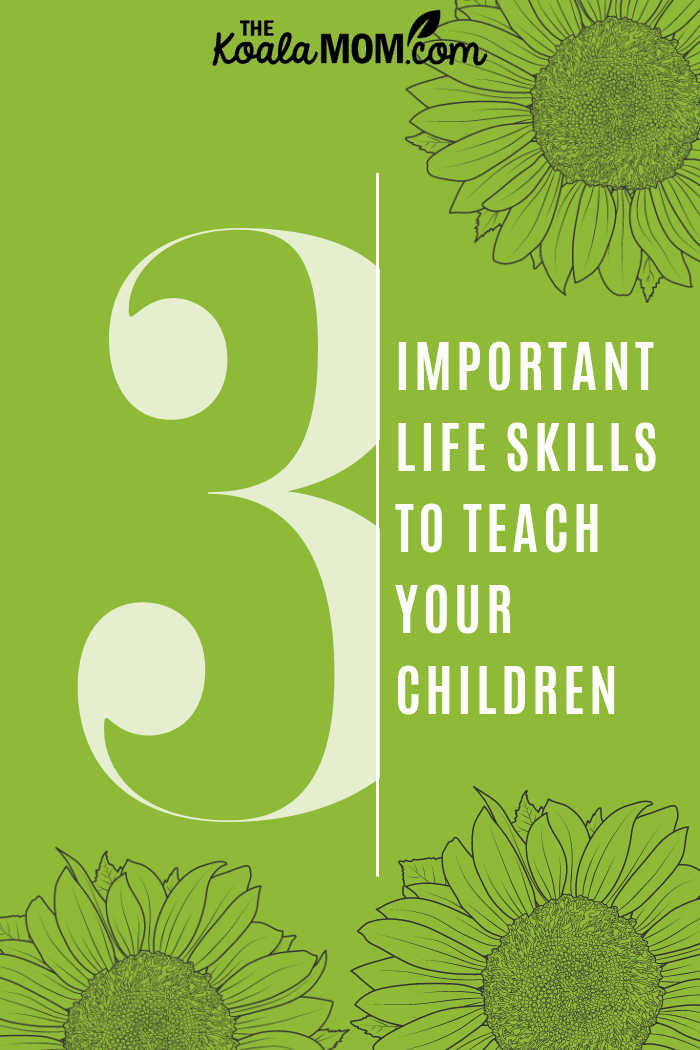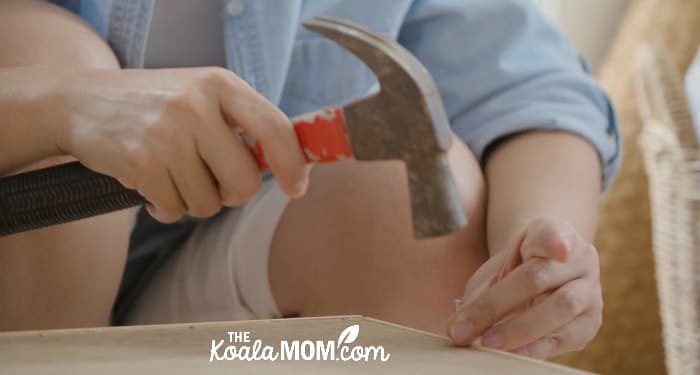Parenting comes with many different layers. On the surface, you look after your children to the best of your ability, but there is also the fact that you need to show them the way of the world, encouraging good habits and trying to sway them away from the not-so-good. Easier said than done, right? That’s why, I’m going to share some of the things you should think about when it comes to teaching your kids life skills that will benefit them in the future.

DIY
We want our kids to grow up to be self-sufficient, so a valuable lesson you can teach them from an early age, is that if something is broken, it doesn’t immediately need to be thrown away or replaced with a new one. You can try to fix it or even repurpose it, through a little DIY. This could simply be replacing the faulty part—for example, check out OEM replacement parts—or upcycling it to make it useable once again.
Whether it’s an appliance or a piece of furniture, this will teach your child a great deal. It’ll highlight that time and effort pays off, and that they are perfectly capable of putting their practical skills to the test without having to always call a professional in.

We’ve done quite a few DIY projects around our home, especially over the last year. The kids have seen me take apart our washing machine and dishwasher to try to fix them (before calling a repairman). My 4-year-old loves seeing me get out the tools, as he’s always happy to “help” me fix something. He firmly believes that a screwdriver and a battery can make anything as good as new again.
Communication
Talking to others, showing kindness, and being able to empathize with others is an important thing that doesn’t always come naturally to people, especially as children. That’s why it’s something that you want to try to instill in them at a young age. Communication is a vital life skill that will serve your children across many areas of life, from university studies to marriage and their careers and more.
I’ve been trying to foster relationships with families whom I notice have strong communication skills. I want my kids to see how other families communicate in friendly, helpful, positive ways, and hopefully that will influence the way we communicate with each other.

Along with this, I pay attention to their actions with others, and try to praise them if I notice that they’ve done something nice, such as sharing their snacks or helping someone out. I know myself and my older girls can easily fall into sarcasm or a snarky tone of voice with each other, and I’m working to correct that, first in myself and in gently reminding them to use a nicer tone of voice with each other.
Self-care
Now, when we say self-care, we’re not talking about a pamper night with face masks and cucumber for the eyelids, although sometimes this could be involved. We mean taking the time to look after themselves fully, such as cooking nutritious meals, caring for their body and mind, and surrounding themselves with people who uplift and support them.
There are a number of different elements that go into this, and it’s definitely not straightforward. With mental health problems on the rise, especially among our young people, it’s important to teach them how repeating positive small practices can enhance their life. If these practices are done on a daily basis, they’ll just become second nature.
You can teach them all about these healthy habits by doing more in the home and setting an example. You could cook a family meal together, help them with a skincare regime, or go on family walks together. This year, two of my goals are to get us outside more often and make time for family prayer each day. Little actions like these can make a positive impact on their lifestyle, which they can carry into adulthood.

These are just a few ideas for you to think about, although often, they will pick up these skills naturally. However, it is always a good idea to keep a close eye on them, to make sure that they are picking things up at the age that you’d expect them to. If not, with a little extra attention, you can always give them a helping hand without putting pressure on them.
What life skills do you think are important to teach your children?

No Responses Yet